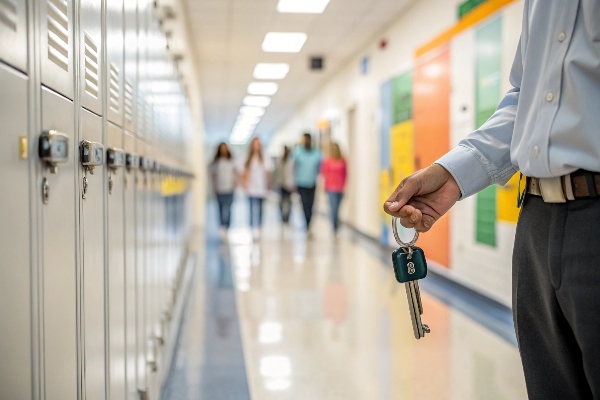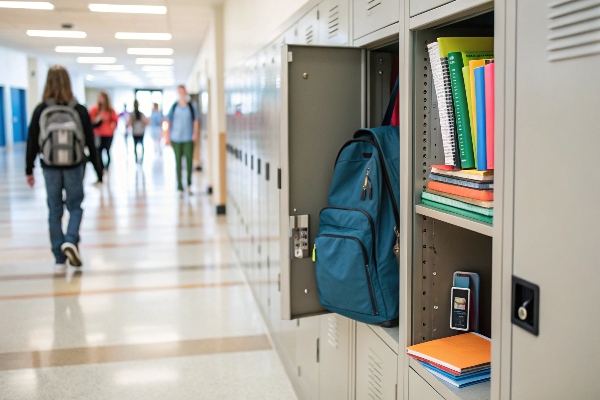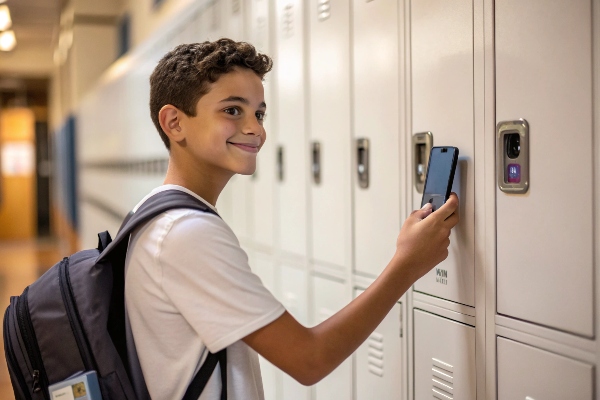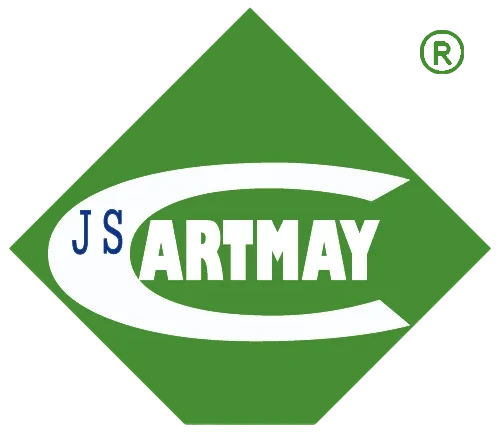
Have you ever found yourself wondering if teachers hold a spare key to your locker? While it might feel like a violation of privacy, the reasons for this practice are often linked to safety and security concerns.
While it’s true that teachers and administrators may have access to school lockers under certain conditions, the reasons behind this practice are not about surveillance, but about maintaining a safe and orderly school environment.
Before diving into whether teachers hold spare keys to lockers, it’s essential to understand what students typically store in their lockers. This can shed light on why some staff members may need access to them.
What Do Students Keep in Their Lockers?
Lockers in schools are often viewed as personal spaces for students, but what exactly do they keep inside? Understanding this helps clarify why some schools might need to manage locker contents more closely.
The contents of a school locker can be diverse—ranging from textbooks to personal items. What students store in their lockers can directly influence school policies around security and access.

School lockers serve multiple purposes, acting as storage spaces for essential school supplies, personal belongings, and sometimes even items that could raise concerns. The variety of things students keep inside their lockers may explain why teachers or administrators might want the ability to access them when necessary.
- Textbooks and School Supplies: At the most basic level, lockers provide students with a space to store their textbooks, notebooks, and other school supplies. These are the everyday essentials that students need to carry from class to class.
- Personal Items: Beyond academics, lockers often house personal belongings like jackets, shoes, backpacks, and even small electronics such as phones or tablets. These personal items can sometimes be valuable, and students might prefer to keep them locked away for safety.
- Food and Snacks: For many students, lockers also serve as a temporary food storage space. Some keep snacks, lunch boxes, or even drinks inside to avoid carrying them around all day. However, this practice raises hygiene concerns, especially with food that can spoil.
- Gym Clothes: Students who participate in physical activities, whether it’s for gym class or extracurricular sports, often use lockers to store their gym uniforms or sports gear. These items are bulky and don’t need to be carried throughout the day.
While the diversity of items stored in lockers is generally harmless, the presence of prohibited or dangerous items—such as weapons, drugs, or alcohol1—raises the stakes for security. Teachers or administrators might need to ensure that lockers are not used inappropriately, which is one reason why school staff could need access to these spaces.
Are Teachers Allowed to Go Through Your Locker?
Can teachers open your locker without permission? For many students, this can feel like an invasion of privacy. However, under certain circumstances, teachers may have the right to open lockers to ensure safety and adherence to school rules.
In most cases, teachers and school staff are allowed to access lockers if there is a valid reason, such as a suspected rule violation or safety concern. The need for privacy is weighed against the necessity of maintaining a secure learning environment.
The question of whether teachers can open students’ lockers often revolves around the balance between student privacy and school safety. While lockers are intended to be personal spaces for students, they technically remain the property of the school, which complicates the issue.
- Ownership of Lockers: Schools own the lockers, which means students’ rights to privacy in these spaces are more limited than in other personal areas. Lockers are provided as a tool for school-related purposes, not as a completely private space.
- Reasonable Suspicion: Typically, teachers or administrators need a reasonable suspicion before opening a student’s locker. This could include concerns about contraband, weapons, drugs, or items that pose a threat to others.
- Formal Search Procedures: In many schools, there are formal procedures in place that must be followed if a locker search is required. This could involve informing the student, involving school security, or even bringing in law enforcement if necessary.
- Balance Between Safety and Privacy: Schools strive to strike a balance between maintaining a secure environment and respecting students’ privacy. Random searches of lockers without a legitimate cause would likely be seen as a violation of privacy rights. However, the threat of danger can outweigh these concerns.
Although this may feel uncomfortable for students, the overall goal is ensuring a safe and positive environment for all. When locker searches occur, it’s usually in response to specific safety or disciplinary issues rather than routine checks.
Are School Lockers Good or Bad?
Lockers are a common feature in most schools, but like anything, they have their pros and cons. Are they a helpful organizational tool, or do they create more problems than they solve?
School lockers can be an effective way for students to stay organized and store their belongings securely. However, when misused or neglected, they can also contribute to stress, wasted time, and security issues.

The benefits and challenges of school lockers depend on how they are used and how well students manage them. While they offer practical solutions for organizing books and personal items, there are also concerns about their potential drawbacks.
Pros of School Lockers:
- Organization and Time Management: Lockers help students keep their materials organized. Instead of carrying around heavy textbooks and supplies all day, students can store items and access them as needed. This can help reduce the physical burden and free up time for other tasks.
- Security and Protection: Students often store valuable items in their lockers, such as electronics, money, or personal belongings. The ability to lock these items away can provide a sense of security, especially for things that could be lost or stolen in a crowded environment.
- Reduced Clutter: With lockers in place, students are less likely to carry everything in their backpacks, which can lead to a more organized and less cluttered environment. This can improve focus and reduce stress.
Cons of School Lockers:
- Time Lost Between Classes: Many students spend a significant amount of time between classes getting books from their lockers or retrieving forgotten items. This often leads to tardiness, which can disrupt learning and cause stress.
- Distractions: Lockers can serve as distractions during the day. Students may become preoccupied with what they store or forget to pick up certain items, leading to frustration or disorganization.
- Security Issues: Despite being locked, lockers are not immune to theft. Students may forget their locker combinations or leave their lockers unlocked, leading to possible theft or damage. In addition, locker theft can create a climate of distrust among students.
School lockers are, in general, a good resource for students, but they require responsible use and proper management. It is important for schools to educate students about locker etiquette, organization, and safety to avoid these potential pitfalls.
Who Is the Legal Owner of School Lockers?
Who actually owns the locker you’re assigned at school? While students might treat lockers as their personal spaces, the legal ownership of these lockers belongs to the school, which has implications for privacy and access.
Although students use lockers for personal storage, the school owns them, which means the school holds the legal right to access these lockers when necessary. This ownership impacts students’ expectations of privacy.
While students may treat lockers as personal spaces, the reality is that school lockers are property of the school, and the institution has the legal right to access them. This includes the ability to conduct searches if needed to ensure safety and discipline.
-
Ownership of Lockers: Lockers are provided by the school as part of the institution’s resources. Because the lockers belong to the school, students’ use of them is technically a privilege2 rather than a right.
-
Search Rights: As the legal owner, the school retains the right to inspect lockers under certain conditions. If school staff suspects rule violations or safety risks, they may search the locker without prior notice or student consent. This is typically governed by school policy3 and legal frameworks.
-
Implications for Privacy: While students have the right to use lockers, they don’t have the same expectation of privacy that they would have in their own personal property. Locker searches are generally permitted if they’re done to uphold the safety and well-being4 of the student body.
Understanding the legalities surrounding locker ownership and access is important for students to navigate their expectations of privacy and school policies. The balance between personal space and institutional responsibility can be delicate but is crucial for maintaining a safe school environment.
Conclusion
While school lockers provide a helpful way for students to store their belongings and stay organized, they also raise questions of privacy and security. Teachers and school administrators may have the legal right to access lockers, but it is ultimately the school’s ownership that dictates the rules. Understanding these policies can help students manage their expectations and ensure a safer and more organized school experience.
-
Explore effective strategies and technologies schools can implement to enhance safety by preventing the storage of dangerous items in student lockers. ↩
-
Clarify the distinction between rights and privileges, especially regarding school resources like lockers. ↩
-
Understand how schools approach locker searches and student privacy in accordance with the law. ↩
-
Learn the legal and ethical justification for locker searches in maintaining school safety. ↩

